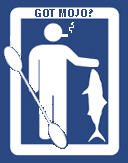|
|

Posts: 20278
Location: oswego, il | I noticed something awhile back that got me thinking. Some lakes like petewell, mad chain, pewaukee and the fox chain are overrun with carp. None of these lakes have shad in them. I fish similar lakes(at least to the fox chain, mad chain and pewaukee) and they have shad and carp in them. That is when it hit me. I have fished alot of lakes with shad and carp in them and none of those lakes are overrun with carp. They have smaller populations of carp and they are not a big factor in the lake's biomass. See where I am going? I think the aformentioned lakes need shad in them. |
|
| |
|
| You are going toward the idea that shad may be an effective predator on carp fry?
You are going to fish more carp lakes?
You are going to fish more shad lakes?
The carp fishing is bad in shad lakes?
I give........where are you going?  |
|
| |
|

Posts: 20278
Location: oswego, il | Firstsixfeet, where i was going is that some of those lakes i mentioned would perhaps be better off with shad in them. It may reduce the carp enough to where they are not a problem, not to mention a forage base that the muskies can better utilize. |
|
| |
|

Posts: 1764
Location: Ogden, Ut | Todd,
I noticed a fairly dramatic reduction in carp numbers in a reservoir in Utah we introduced gizzard shad into. I think your observations are reasonably accurate. The downside of the introduction is that we also saw a fairly dramatic downturn on the recruitment of channel cats, crappies and bluegill; all fairly important sport species. The shad are an extremely effective competitor and one definately has to be careful what you wish for, so to speak. There are as many or more examples in fisheries literature where shad have caused nearly catastrophic ecological problems as examples of where they have cured a forage deficiency. They are a wonderful tool, if the conditions exist for their proper utilization. A lot of managers will not be willing to take the risk, because once that genie is out of the bottle, there's no corking it back up.
Another aspect of considering their introduction is latitude - most of them will die when temperatures hit 40F. This can lead to either an ideal situation or a waste of time. If a high percentage of them die each winter, then the survivors repopulate each spring, it can be fantastic. On the other hand, if too few die, they literally take over and if all of them die, you get into an extremely expensive annual forage stocking program.
I have only scratched the surface of the forage manipulation shell game, but I think you get the idea. Could be good, could be bad; are we willing to risk what we have for 'potential'? And now we can begin arguing philosophy... 
K. |
|
| |
|

Posts: 20278
Location: oswego, il | Kent, one thing I have seen with shad lakes in early spring is their ability to produce feast or famine fishing. Feast being a mild winter and famine being a colder or at least prolonged ice conditions. I theorize that muskies are feasting on the dead shad and don't have to chase a meal untill they start to rot when the water warms. This sound accurate? |
|
| |
|

Posts: 1764
Location: Ogden, Ut | True, but when the shad are dying/recently dead, the muskies metabolism is slower and it's need for food is concomittantly diminished. Granted, the cold also preserves the shad for an enhanced period of time, but what good is a stocked buffet when you're not hungry? I see the real advantage of shad being in the fall just before they start to die, generally all sizes are available and predators get a chance to feast before they do hit the slower times of winter.
K. |
|
| |
|

Posts: 20278
Location: oswego, il | Kent, I base it on some experience. During milder winters, ice out is a good time to fish and you can have good success. If it is a longer winter and more shad die, ice out is not good at all and it seems to be slow untill the water warms. I do think they are eating dead fish. |
|
| |
|

Posts: 1764
Location: Ogden, Ut | I don't doubt that at all Todd. I thought you were talking about feast or famine for the fish - not the fishing! LOL
In shad-based systems it is rarely famine for predators, they either eat dead ones or live ones, but either way, there are still millions to choose from! It is almost always feast, some are better at it than others. The schooling behavior of shad can confuse lay-in-wait predators to some extent, but a percentage always figure out how to overcome it. But like you mentioned, when they die, any blind pig can find those acorns...
K. |
|
| |
 Shad vs Carp populations
Shad vs Carp populations Shad vs Carp populations
Shad vs Carp populations